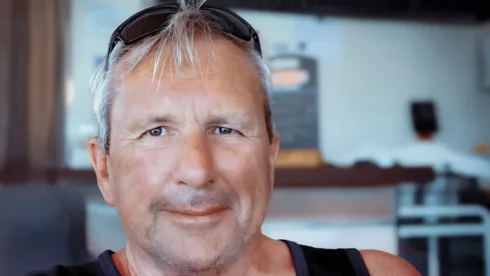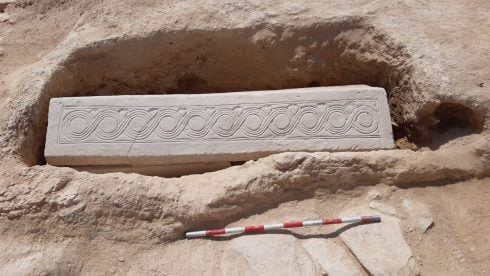By WENDY ANDERSEN
Problem solving is what we do. All of us. Even the idiots. Our brains see things that aren’t right, and automatically begin to problem solve. Some do it better than others. Some even follow through with enacting the solutions. We review past conversations thinking about what we should have said. We plan for a conversation ahead: how to ask for things in Spanish or tell our boss we want a raise. It’s the reason we are the dominant species. It’s also what makes us the species that suffers anxiety and depression.
It starts with how the brain launches the problem solving process. It detects what is called a discrepancy gap: the way things are versus the way I want them to be. For example, I am at home but I need to be at the venta meeting a friend. Simple enough. The brain starts problem solving: there is a variation between current location and desired location. How far away is it? How did I get here? Why am I not there? None of these thoughts make the distance further or the problem more difficult to solve. The problem solving is helpful. Well done evolution.
Now let’s consider a different kind of discrepancy gap. I should be feeling happy that I’m meeting my friend at the venta. Instead I feel anxious. I’m worried they might only be going because they feel they have to. Then I feel sad, unsure of myself. There is a gap between reality (sadness) and what I think it should be (happiness). That triggers the brain into action, to start problem solving. How far away is it? I start to concentrate on how sad I am and how happy I really should be. How did I get here? I think about all the things that went wrong recently to explain my sadness (the brain is so good at problem solving it will look for evidence beyond the current situation). Why am I not there? Well obviously because I’m a useless person incapable of rational thought. I feel worse. The gap between where I am (sad) and where I want to be (happy) has grown. My brain’s attempts at problem solving – that works so well in practical areas – has made the situation worse.
These efforts to problem solve are a bit like quicksand. The more you move around and try to solve the problem the more quickly you sink. Just like quicksand, the solution is becoming still. This is the theory underlying research by Professor Mark Williams at Oxford University into why mindfulness can be used as a treatment for anxiety and depression.

You’ve probably heard of mindfulness, but maybe you’re not so sure about what it is. A simple definition would be “paying attention without judgement”. In everyday life, we often find ourselves on autopilot. That moment when you realise you’ve been driving for the last ten minutes without really noticing. You grab a quick bite while running off somewhere, hardly noticing what you ate let alone how it tasted. We miss out on the sights, sounds, tastes, and feelings that nourish us. Yes, to stop and smell the proverbial roses. But also a bit more than that. Here’s the hard part: noticing without judgement. Letting go of all those thoughts about how things should be, ought to be, must be in order for me to be happy. Ridiculously simple and profoundly difficult.
Gaining control over you thoughts is a skill like any other – it takes practice. Ever tried to meditate, and gave up in exasperation because you could not still your mind? Of course you have – that’s what our minds do. They problem solve. You start thinking about grocery lists, what you have to do that day, what you said to your partner that morning when you were annoyed. Our brains chug along in their own little way looking for problems and solutions. Mindfulness is about being aware of the thoughts, even learning to have some control over them.
Here’s a one minute exercise you can do to start learning how to control your mind. Sit with your back straight, let your eyes close, breathe slowly. This is an attentive posture rather than a relaxed lying down posture. For one minute try to focus your attention on your breath, maybe one aspect in particular like how it feels on the tip of your nose, or how your chest inflates and deflates. Each time your mind starts to wander, and it will, simply acknowledge where it went and then gently bring your attention back to your breath. Each time your mind wanders just repeat the same process and try to notice your breath again. Do this three times a day – just before meals, perhaps?
If you can, build up over time to longer periods. This ability to direct your thoughts to your breath strengthens the same process you use to move away from thoughts of judgement. Once you can move away from thoughts of judgement about the world, you can move away from negative judgments about yourself. Eventually you can narrow the discrepancy gap between how things are and how they should be. By doing that, you may eliminate one of the fundamental causes of anxiety and depression.
Wendy Andersen [Ph.D. MPCBT (AAC)] is a CBT therapist specialising in ex-pats living in Spain. More information is available on www.cadiz-therapy.com Appointments are available face-to-face or online.
READ ALSO:









Another silly example of the reasons that anyone worries. What about the real issues of life such as a child sustaining a major head injury and needing constant care for the remainder of their life. A neighbour who claims that you have moved your boundaries to appropriate some of his property and commences a court case then, having lost the court case follows you around trying to run you down in his car.
Just a couple of reasons to be depressed and need medicine to sleep or relax and function!!!